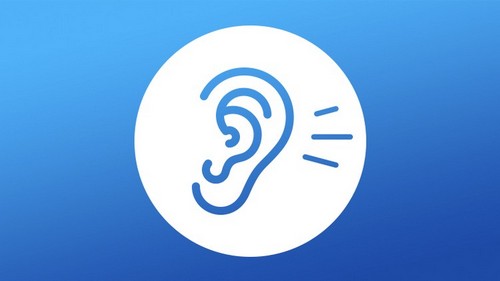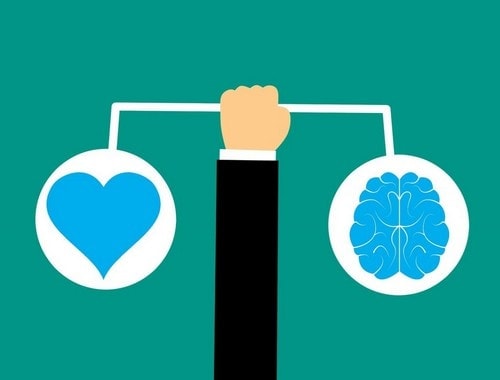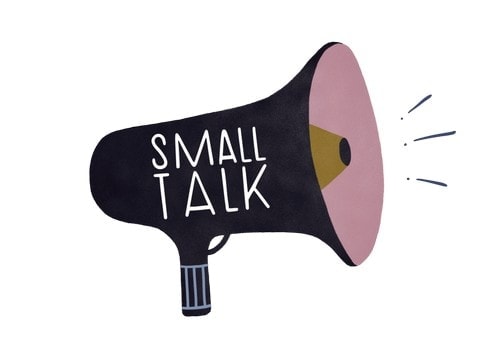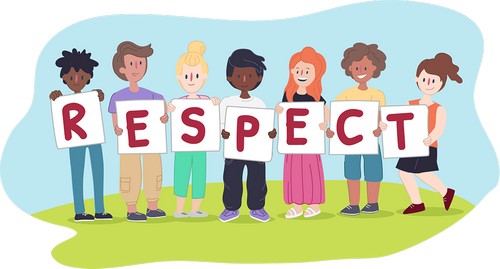
Mastering Communication: Top 10 Skills for Success

Mastering communication skills is key to success in today's competitive world Discover the top 10 essential skills, from active listening to asking questions, and learn how to improve them Enhance your ability to understand, negotiate, and build relationships with these valuable tips
Communication skills are highly valued in today's competitive world. Being able to effectively communicate is a valuable attribute that can aid in understanding, negotiating, and interacting with others. Whether in your personal or professional life, having strong communication skills is a key ingredient for success. This skill allows you to interact with colleagues, staff, peers, and employers in a professional setting, as well as with family members, friends, and children at home. By possessing good communication skills, you can efficiently resolve differences in opinions and foster mutual respect.
Communication in the workplace may appear straightforward, but it's important to remember that everyone has a unique perspective. Misunderstandings can easily occur, leading to hurt feelings and strained relationships. It's not uncommon for people to misinterpret words and messages, so it's essential to prioritize improving communication skills for more effective interactions in the future.
What are Communication Skills?
Effective communication is a crucial component of achieving success in any workplace. By improving your ability to communicate with colleagues, peers, and supervisors, you will not only enhance your job performance, but also increase your overall job satisfaction.
Good communication involves not only speaking but also listening. Listening skills are equally vital as speaking skills as they enable all parties involved in a conversation to comprehend the message without the need for repetition or clarification.
The Importance of Good Communication Skills
Having strong communication skills is crucial in any workplace setting. Being able to effectively convey information and ideas is one of the most valuable skills an individual can possess. Communication encompasses verbal, nonverbal, and written forms, and is utilized in various ways such as conversing with colleagues, actively listening, composing professional emails or letters, and utilizing body language. Effective communication ultimately leads to better understanding between individuals and minimizes potential misunderstandings or confusion.
Good communication is essential for efficient learning as it eliminates the need for guessing or repeatedly asking questions. This is particularly crucial when learning new information or concepts. Failing to comprehend what someone is saying will hinder the learning process, making it challenging to gain knowledge from them.
Top 10 Good Communication Skills
Here are some of the good communication skills that you need to communicate effectively in verbal, written communication, and non verbal communication.
1) Active Listening
Active listening is considered one of the most important communication skills, and it's no wonder why. Listening attentively to others is crucial in establishing good communication and building strong relationships. So, if you're looking to improve your communication skills, make sure to focus on developing your active listening abilities.
Poor communication skills manifest in individuals who have a tendency to speak without thought, interrupt others mid-sentence, and exhibit restlessness while someone else is speaking. These actions convey a lack of interest in the conversation and can ultimately cause communication breakdowns. To establish oneself as a competent communicator, it is important to practice active listening by giving undivided attention to the speaker and attentively analyzing both verbal and nonverbal cues.
Pay attention to his nonverbal cues while keeping your own body language open and approachable. Engage in active listening by asking relevant questions and clarifying points. Provide valuable feedback and comments to demonstrate your participation and understanding.
2) Body Language
Consider this scenario: you're engaged in a conversation with a key individual who holds the power to either advance or hinder your future. After chatting for a brief moment, you notice the other person glance around the room and appear disinterested. This is why body language proficiency should not be underestimated.
When faced with someone whose facial expression is distant and whose stance suggests a desire to escape, it's natural to feel disheartened. This reaction is only compounded when you realize that the other person hasn't been listening to a word you've said. That's why it's so crucial to cultivate a positive attitude and body language - they're both integral components of effective communication. Our bodies are incredibly expressive, and they can convey a wealth of information without us ever having to utter a single word.
It's important to pay attention to every small detail, including your eyes, facial expression, and posture. When interacting with others, maintain eye contact and engage with them while speaking. Show genuine warmth by smiling at appropriate moments and offering a firm handshake or warm hug if you have a close relationship with the person. Hold your head high with your shoulders back and maintain good posture.
Be open and look as if you are concentrating fully on the on-going conversation.
3) Emotional Intelligence
Emotional intelligence, which involves the ability to comprehend the emotions of others, is regarded as one of the most valuable communication abilities. This skill is not something that can be learned overnight, but rather requires years of practice and experience to master.
Being emotionally intelligent means having the ability to effectively navigate social situations by being aware of and responsive to the emotions of others. Communication is a two-way street, and it's important to take into consideration the feelings of those you interact with if you want to establish a positive and productive rapport.
The key to success lies in adapting your language and approach based on the situation and the emotional state of your audience. Pay attention to nonverbal cues, such as facial expressions and body language, and try to understand the underlying motivations. By doing so, you can tailor your message to better resonate with your listeners and build stronger connections.
When discussing the importance of an office party with your senior employer, it's important to be aware of any negative reactions they may have. If the topic of alcohol at the party elicits a change in their facial expression or demeanor, it's best to pivot the conversation and acknowledge that although some may have been in favor, the decision has been made to skip the drinking portion for this particular event. This can help put your employer at ease and allow the conversation to continue on a positive note.
Remember emotional intelligence requires thinking on the feet and responding in accordance with the situation.
4) Articulation and Tone of Your Voice
Having poor speaking skills can indicate a lack of confidence and hinder effective communication. To improve your communication abilities and make a positive impression, it's important to focus on your articulation and tone. You may have encountered individuals who struggle to speak clearly and confidently, either murmuring or shouting. In such cases, it can be difficult to understand their message and perceive the intended meaning.
Ensure that your articulation and enunciation are precise to achieve the desired tone in your voice. To identify any inconsistencies, you can record yourself and analyze the playback. Speaking at a moderate pace and with a calm demeanor will help you achieve the ideal quality and tone. Keep in mind that the tone you convey can influence the mood of others, so it's essential to focus on the appropriate volume, tone, and emotional expression.
Be friendly and helpful so that the recipient of your words also continues in the same spirit.
5) Clarity
Ensure that your message is conveyed in a way that is easy to comprehend and digest for your audience. This can be achieved by presenting your ideas in a clear, concise, and logical manner. To do this effectively, it is crucial to conduct thorough research and organize your thoughts beforehand. Additionally, using simple and straightforward language can help ensure that your message is understood by all. Avoid using complex or jargon-heavy words that may confuse your audience and instead focus on conveying your message in a way that is accessible to everyone.
Have faith in your expertise and let it manifest through your demeanor and nonverbal cues. Keep in mind that your lucidity will enable you to establish a rapport and convey your message to your listeners smoothly and convincingly.
6) Small Talk
Engaging in small talk may seem trivial, but it serves an important purpose of creating a comfortable atmosphere for communication. It allows for a connection to be established between individuals and can lead to deeper conversations and relationships. As a result, it is considered a valuable communication skill and should not be dismissed as meaningless chatter.
Approaching someone and immediately discussing your topic of interest may not be the best approach. If you approach someone you've been wanting to connect with for an important project and immediately delve into the difficulties you're facing, they may react negatively and distance themselves from you. Starting with small talk and gradually easing into the topic may lead to a more positive outcome.
Building relationships through small talk is a valuable social skill that comes naturally to some, but can be challenging for others. It's important because it creates a foundation of common ground and rapport that can lead to deeper, more meaningful conversations. Being able to put others at ease and make them feel comfortable is a key aspect of this skill, and can lead to stronger connections and relationships in the long run. As people become more familiar with each other through small talk, they may feel more comfortable taking conversations to a deeper level.
7) Empathy
Look for empathy if you are interested in top ten effective communication skills. Both in the home and professional front, each person has his own way of working.
Empathy is a crucial soft skill that involves comprehending the perspectives of others and adapting to them. Someone who possesses empathy will take into account every viewpoint, honor the desires of others, and ultimately reach a decision that benefits everyone involved. It's important to keep in mind that even if you don't agree with someone, taking the time to understand their point of view can prove to be extremely valuable. Demonstrating empathy towards others also makes you more approachable, which is particularly advantageous when working in a team.
A person who has this communication skill will always try to diffuse tense situations via his positive approach.
8) Respect
Maintaining a healthy and lasting relationship requires both parties to show respect towards each other. If you're aiming to improve your communication skills, it's crucial to recognize the significance of having a respectful approach towards others. This is one of the top ten effective communication skills that you should prioritize acquiring.
Show consideration towards others by paying close attention to their emotions and communicating with them respectfully. It is important to be genuine and sincere in your interactions, as people are more likely to respond positively when they feel valued and respected. Don't disregard someone's work experience or seniority, and think before you speak to avoid any negative consequences.
Maintaining eye contact and focusing on the conversation without any distractions are small but impactful gestures that demonstrate your dedication to effective communication. By showing that you value the other person's thoughts and opinions, you create a positive and respectful atmosphere that encourages healthy dialogue.
It's crucial for businesses to gather feedback in order to understand how their products, services, and actions are perceived by the world. As a result, being able to give and receive feedback appropriately is highly valued by management in the professional world. Feedback can come in various forms, including verbal and written communication, but it's also important to pay attention to a customer's body language in order to gauge their level of satisfaction with your offerings. Facial expressions and attitudes can provide valuable insights into whether a customer is receptive to your products and services or if they view them as subpar.
If you're seeking to improve your communication skills, it's important to seek out individuals who are capable of offering constructive feedback. This can be accomplished through a variety of means, such as status updates, phone calls, emails, or feedback forms.
Individuals who possess this valuable soft skill are adept at actively listening to feedback, offering praise where appropriate, comprehending key points, clarifying any issues, and ultimately implementing necessary suggestions. It's important to recognize that companies who value and incorporate feedback are often able to progress more rapidly than those who believe they're always in the right.
10) Asking Questions
Asking questions is a fundamental aspect of learning and understanding. Teachers encourage students to ask questions because it has been proven that curiosity drives a person to seek knowledge. When it comes to developing effective communication skills, asking relevant, probing, and open-ended questions is key. This approach promotes introspection, reflection, and the sharing of thoughts and ideas, ultimately leading to a deeper understanding of the topic at hand.
Asking someone a question demonstrates your attentiveness to their perspective and opens the door for deeper discussion and connection. To ensure you are not interrupting, wait for a natural pause or an invitation for questions. Engaging in a productive back-and-forth of questions and answers can greatly enhance the outcome of a conversation.
Demonstrating strong communication skills means being confident and unafraid to ask questions in order to clarify one's thoughts. It also involves being able to convey a message in a clear and concise manner that resonates with the audience.
Replaying the necessary information in a simple and easy manner is key. Developing effective communication skills takes time and effort, so it's important to take deliberate steps to nurture, cultivate, and practice them consistently.
How to Improve Your Communication Skills
Effective communication is crucial for success in any job, and it's even more vital in the workplace. To enhance your communication skills at work, consider these helpful tips:
41. Instead of thinking about what you want to say next, focus on understanding the speaker's message and perspective. This will not only show respect for the speaker, but also help you gain a deeper understanding of the conversation.
42. By improving your communication skills, you'll be able to collaborate more effectively with colleagues and develop stronger relationships with clients and customers.
Final Words!
Mastering communication skills in the workplace can be challenging, but it's essential for success. Effective communication is crucial in navigating through various workplace situations. With practice and patience, anyone can improve their communication skills and become a better communicator.
:
Observe the non-verbal cues of your colleagues in the office, such as their body language and tone of voice. These can be valuable indicators of their thoughts and feelings. By doing so, you can establish trust and enhance your ability to work effectively with others in the team.
Communication Quotes
PREV
Communications Mix
START
What is Communication


















